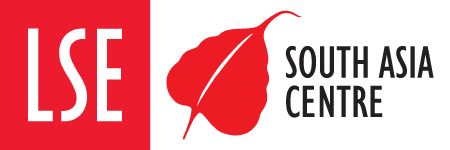South Asia @ LSE was first launched in June 2012 as ‘India @ LSE’ to promote India-related research, and events at the London School of Economics and Political Science. In June 2015 it changed its name as it became part of the newly-established LSE South Asia Centre.
The blog aims to make the academic research of LSE faculty, fellows, students and alumni more accessible to journalists, policymakers and others who share an interest in the region. It also strives to spark dialogue about South Asia-related issues among the academic community. The initiative was supported in its first year by the LSE Annual Fund and is now funded by Higher Education Innovation Funding.
A portal on South Asia is a natural evolution of LSE’s history with the region, which starts with the School’s foundation in 1895. As early as 1912, an Indian student became the first non-European president of the Students’ Union.
Many famous South Asians have passed through LSE over the decades. The most prominent include Dr Bhim Rao Ambedkar, a founding father of the Indian constitution and a leader of the Dalit community in India; Prime Minister Sher Bahadur Deuba (Nepal); Diplomats Munir Butt (Pakistan), Abul Fateh (Bangladesh); Attorney General Makhdoom Ali Khan (Pakistan); leaders Tyronne Fernando (Sri Lanka) and Abdul Qayyum Khan (Pakistan); Justices Mustafa Kamal (Bangladesh) and Dorab Patel (Pakistan); economists I G Patel (ex-Director of LSE, former Governor of the Reserve Bank of India), A. S. Jayawardene (former Governor, Central Bank of Sri Lanka), Syed Ali Raza (former President of the National Bank of Pakistan); and trade unionist and women’s activist Vivienne Goonewardena (Sri Lanka).
But LSE’s involvement with South Asia extends beyond the achievements of a few individuals. In the 2014-15 academic year, students from the region comprised the third-largest international contingent on campus. The LSE Student Union Nepal, Pakistan, Tamil and India societies regularly celebrate festivals and organise dinners and lecture series.
Numerous academic initiatives and fellowships also seek to promote the study of South Asia at LSE. Since 2003, LSE has been intensifying its institutional engagement with the subcontinent still further, developing strong links with Indian academic institutions, government and corporate bodies to foster an exchange of ideas and research.
This blog is part of the effort to sustain and strengthen the LSE-South Asia partnership.
About the editors: Mahima A. Jain and Rebecca Bowers are the editor of South Asia @ LSE. Mahima has a MA in Journalism and has worked as an editor and journalist in India. Rebecca Bowers is a final year PhD student in the Anthropology Department at the London School of Economics.
Disclaimer: The views expressed on South Asia @ LSE reflect the views and opinions of individual contributors. The articles posted have been reviewed for content and seek to support academic integrity and dialogue. This blog does not necessarily reflect the views or positions of the London School of Economics and Political Science.
Photo credit: The blog’s banner image is comprised of two photographs by LSE students: “Classic Bombay Cab” by Megha Okhai and “Innocent Giggles” by Abha Shri Saxena.
Comments policy: This blog welcomes feedback and comments in accordance with certain guidelines.


